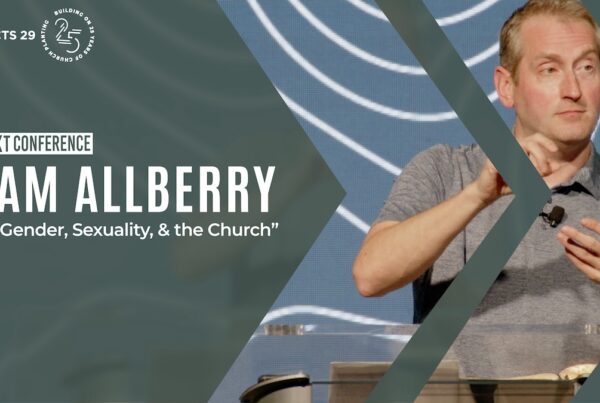It’s easy to mock a “celebrity pastor” but harder to learn from one. Falling stars attract attention for a moment, spark a reaction, and then fade. Our in-the-moment reflection traces a tragic arc: pastor starts off with kingdom ambition, rises in influence (which must have gone to their head), and then plummets in ruin. But this arc doesn’t happen overnight.
Detecting the Fire
A few years into church planting, I began to notice a number of pastors burning out of ministry and leaving their churches. Some left out of exhaustion, others out of moral failure, and some, frankly, because they’d followed the siren of ambition instead of the calling of the Spirit.
I folded a Windsor knot, pulled on my suitcoat, got into the car with my wife, and drove to the church. Before the service, I noticed his wife and children, off to the side, swallowed in grief. Attending the funeral of a church planter, who’d died by suicide, I became keenly aware I was in a perilous calling, and that I too, could succumb to a similar fate.
I began to reflect more deeply on my own motivations for ministry and evaluated my habits. During this time I read Leading on Empty by Wayne Coirdero, who helped me identify physical warning signs of burnout. One sign is a lack of motivation, even for the things you love. He notes that a decline in motivation may be the result of overworking and under-resting. Overworking is working when your body is telling you to rest. It’s burning the laptop screen at night, when our bodies are trying to shut down. This depletes serotonin and adrenaline levels, hormones necessary for active productivity. We’re not made to run full throttle for long.
I arrived at my last speaking engagement for the year and invited the host pastor into his office. I shared with him that, though I was exhausted, I was confident God had a word for his people. I was not confident, however, that I could continue at this clip. I asked for prayer, and his church responded with a level of hospitality that, in my experience, has been unprecedented. I noted their example for myself and our own church. But hospitality, of course, requires presence, in more ways than one.
Burnout is preventable. But the pastor is responsible for how he responds to ministry pressures.
When I got home I confessed to my wife and our leaders that I’d accepted too many speaking engagements for the year. My wife, a discerning and wonderful partner in ministry had approved all the speaking engagements. But she, too, was inexperienced in the toll they could take. As a result, I stepped away from speaking engagements for about a year and focused on my family and church. I was reminded how satisfying local ministry can be. It had become a chore.
If you are experiencing a consistent tendency to withdraw from things you find difficult, (perhaps counseling or preaching, it all depends on the pastor), this could be a sign you are serving in your own strength. If you are overworking, natural strengths will slowly become weaknesses. And as you become aware of these things, it will be tempting to withdraw from responsibilities without processing with others. Resist that temptation. Humble yourself to seek unity in your actions.
Burnout is preventable. But the pastor is responsible for how he responds to ministry pressures, congregational expectations, and outside demands. Most of all, he has to be aware of the spiritual pathology that drives burnout.
Burning Up
Driven to make a difference “in the Kingdom,” we can sacrifice our King to feel significant in the eyes of others.
What is burnout? Is it a disease we contract, with the cure simple avoidance of the contagion? Often, beneath our overworking is the lure of significance. Driven to make a difference “in the Kingdom,” we sacrifice our King to feel significant in the eyes of others. Their applause rings more loudly in our ears than the silent significance we have from God.
Alternatively, we may overheat because we’ve been striving for congregational approval. It can be difficult to juggle diverse expectations in the church, which is why it’s crucial we remember Jesus’ foundational expectation of us—receiving his ministry of the Word and enjoying his presence in prayer. In the end, our habits reveal our hearts. Perhaps burnout should be called “burn up,” the charring of spiritual appetites by an idol that is too hot to handle.
Secret Fellowship
As my heart lit up with warning signs, I reacquainted myself with life-giving habits. Knowing I experience joy in creation, I began to walk the quay next to a lake that runs through our city, pray out loud, and listen to God. I found myself on my knees more, where I typically sense God’s greatness in a way that is hard to grasp sitting or standing up. I also returned to a devotional I have found life-giving over the years. While reading, I fell upon a quote that changed my life:
Love for God may be fine sentiment. It may be sincere and capable of inspiring holy enthusiasm, while the soul is still stranger to fellowship with the eternal, and ignorant of the secret walk with God.
An enthusiastic leader is not necessarily a content leader. Abraham Kuyper, who accomplished a remarkable number of things, is reminding us that it’s possible to love the ideas of God without loving God himself. We can possess passion for gospel ministry while lacking it for the Lord of the gospel. We can become strangers to secret fellowship with God because we have jumped in bed with lesser loves.
I know, in my bones, the nearness of God, not the love of his ideas, his church, or his mission, is my good.
We may preach, lead, and grow a church all in the name of Jesus without intimately knowing Jesus. This led me to deep repentance, and Kuyper’s wisdom continues to pop up and guide me. To this day, my sense of God’s nearness rises and falls, but he remains ever-present and with me. And I know, in my bones, the nearness of God, not the love of his ideas, his church, or his mission, is my good.
The signs of “burn out” register pretty early. And for those willing to pay attention, a lot can be gained, not only for ourselves but also for those who watch stars fall. While no one is beyond burnout, anyone can prevent it.











